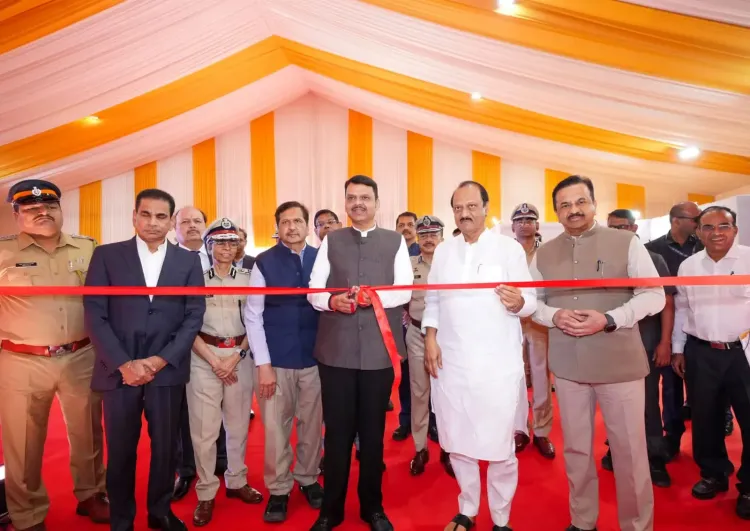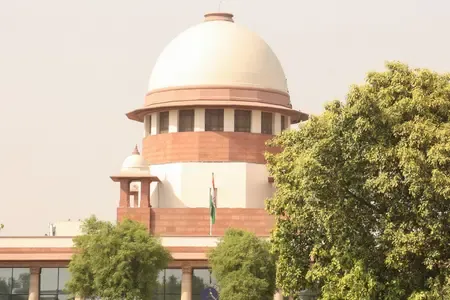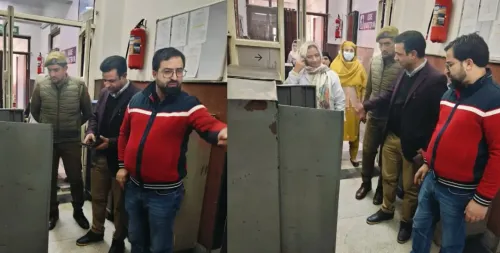Could New Criminal Laws Boost Conviction Rates to 90%? Maha CM

Synopsis
Key Takeaways
- New criminal laws could boost conviction rates to 90%.
- Victims are expected to receive justice in a timely manner.
- Modern provisions address digital and electronic evidence.
- Significant police reforms have been implemented.
- The laws focus on enhancing victim rights and ensuring transparency.
Mumbai, Nov 19 (NationPress) Chief Minister Devendra Fadnavis emphasized on Wednesday that the introduction of new criminal laws could potentially elevate conviction rates to 90 percent, noting that victims are now receiving justice in a timely manner.
He pointed out that the outdated British-era criminal laws lacked provisions to address modern crimes, particularly those reliant on digital and electronic evidence. Consequently, victims often faced extended delays in obtaining justice.
With the Central Government's enforcement of these new criminal laws, he asserted that justice for victims is being delivered in a more expedient manner.
The Chief Minister made these remarks during the launch of a five-day exhibition focused on the new criminal laws at Azad Maidan.
“The Indian Penal Code, the Code of Criminal Procedure, and the Indian Evidence Act were designed during British rule, spanning over 125 to 150 years. These laws did not cater to the progress of India or ensure prompt justice for victims. The enactment of these new laws has transformed the system, making it more stringent for the accused and more favorable for victims seeking justice. In a democratic setup, the elected government is a ‘trustee’ of the people, not a ruler. Hence, these laws have been crafted with a focus on justice rather than mere punishment,” he remarked.
“In 2013, the crime conviction rate in the state was merely 9 percent, but it has now risen to 53 percent. The new criminal laws have the potential to further increase this rate to 90 percent. The government has also reformed the police force through 14 key decisions, establishing new appointment rules and a modern police structure. We are committed to building a police force equipped to tackle new challenges. Over 50,000 positions have been filled in recent years, and our police force is currently the best in the country, with aspirations to be the best in the world,” the Chief Minister stated.
He acknowledged that cybercrime poses a significant challenge, adding that the state boasts the best cyber lab in the nation. Recently, over 60 girls were rescued from cyberbullying incidents, with evidence being transparently verified through Justice Assistant Mobile Vans.
“Thanks to new technology, the backlog of samples awaiting analysis at Justice Assistant Laboratories is diminishing. The new criminal laws also allow crimes to be registered at any police station, preventing criminals from escaping justice by fleeing to other states. Citizens can now register an FIR with ease,” he observed.
Deputy Chief Minister Ajit Pawar also highlighted that the new criminal laws have established a framework to secure evidence and ensure that criminals face consequences, leveraging modern technology to stay relevant. This implementation has empowered authorities to impose stringent penalties on societal offenses.
He noted that the new laws include various provisions aimed at dynamic justice and enhancing transparency. The framework accounts for digital and electronic evidence in the prosecution process.
“Crucial provisions for the safety of women and children are embedded in these laws, aligning with the constitutional principles of freedom, equality, and justice. The effectiveness of any law hinges on its implementation, and this exhibition offers an opportunity to learn about these significant laws,” he concluded.









